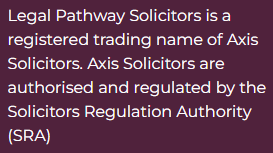The ‘No Recourse to Public Funds’ (NRPF) condition is a familiar term for many migrants in the UK, routinely noted on their Biometric Residence Permits (BRPs). Migrants with this stipulation on their BRP are precluded from accessing a range of state-funded benefits, tax credits, or housing support. The Home Office has traditionally reviewed the NRPF condition exclusively in contexts involving family life, private life, and British National (Overseas) (BNO) claims. This stance has meant that a broad segment of the migrant population, notably a substantial number of international students, have been ineligible for such financial support. These individuals often find themselves on precarious incomes, so the absence of social welfare and housing assistance has presented significant challenges to their UK residency.
Nevertheless, there has been a pivotal change in this policy. The Home Office has introduced a new policy directive in response to a recent High Court ruling. This directive outlines specific instances in which the NRPF condition may be reconsidered for those in the UK on student visas or as their dependents. This move marks a substantial policy shift and offers a ray of hope for those who have been struggling without access to public funds. We will delve into the case details that led to this landmark decision and explore the implications of the court’s judgement.
Case Study: Challenging the NRPF Condition in the UK
Ghana-born PA, initially arriving in the UK on her then-husband’s student visa, faced abandonment and the challenges of single motherhood in a foreign country. Her child NA, born in the UK to a father with settled status, was awarded a British passport, a ray of hope amidst their financial hardships. Despite her determination to provide for her child, PA encountered obstacles with the UK’s immigration system.
In an act of resilience, PA sought a visa through the family life route, leveraging her parental bond with NA, and was granted a fee waiver for her application. However, during the processing period, their situation deteriorated. PA swiftly adjusted her student-dependant visa to remove the No Recourse to Public Funds (NRPF) condition to support her family better.
The Home Office refused to alter her visa conditions; therefore, PA undertook a judicial review claim. This legal battle led to a series of critical decisions by the Secretary of State for the Home Department (SSHD), including the controversial revocation of NA’s British passport. This revocation impacted PA’s visa application, as her child was no longer recognised as a British citizen, leading to the maintenance of the NRPF condition.
Undeterred, PA appealed the refusal and sought to revise the judicial review grounds to address the recent NRPF decision. Her story is a testament to the complexities faced by immigrant families navigating the UK visa system, highlighting issues of family rights and immigration policy.
The NRPF Clause under Section 3 of the Immigration Act 1971
Under the framework of the Immigration Act 1971, particularly Section 3(1), the Secretary of State holds the authority to issue limited permission for individuals to enter or stay in the UK when deemed necessary. As detailed in Section 3(2)(c)(ii) of the same act, this limited leave can be accompanied by the ‘No Recourse to Public Funds’ (NRPF) stipulation. It is important to note that the action does not outline specific scenarios where the NRPF condition must be imposed.
Current Immigration Rules clarify that lifting the NRPF condition may be considered if the individual faces poverty, pressing concerns regarding child welfare, or in cases of other extraordinary circumstances. However, as of now, these provisions are primarily applicable only to those with visas pertaining to family, private life, or British National (Overseas) status.
Court’s Assessment on the NRPF Stipulation
During a significant judicial review, the court ratified two critical declarations mutually agreed upon by both parties. The first declaration affirmed that the Secretary of State has discretionary power to either impose or lift the ‘No Recourse to Public Funds’ (NRPF) condition on an individual’s limited leave to remain in the UK. The second declaration was that the failure of the Secretary of State to properly instruct caseworkers on the existing statutory discretion to lift the NRPF condition, specifically for individuals on student visas, was deemed unlawful.
Further explanations by the court included:
- The Secretary of State can lift or refrain from imposing the NRPF condition for those granted limited leave to remain, which is not exclusively limited to family, private life, and BNO pathways.
- The Secretary of State’s initial refusal to consider an application for lifting the NRPF condition was unlawful as it failed to acknowledge the statutory discretion that should be applied regardless of the applicant’s visa category.
- It was considered unlawful for the Secretary of State not to guide caseworkers in their discretion to lift the NRPF condition for those holding student visas.
- The court highlighted that even in the absence of explicit references in the Immigration Rules to the Secretary of State’s discretion concerning the NRPF condition, such as with provisions relating to student visas, the Secretary of State still holds the statutory discretion to lift or not impose the NRPF condition and is required to evaluate requests to lift it from holders of any visa type.
Finally, the court noted that the claimants’ additional challenges were rendered obsolete by the new policy issued by the Secretary of State, following which the Secretary of State swiftly granted one of the claimants access to public funds. A settlement was reached after the Secretary of State consented to revisit the application for a British passport and, on the second day, granted the claimant access to public funds.
Implications for Immigrants in the UK
This legal development is a beacon of hope for immigrants in the UK, particularly students and their dependents, who can now foresee a future where financial support from public funds is within reach. The judgement enables a broader spectrum of visa holders to seek the lifting of the NRPF condition. It serves as a reminder of the government’s duty to articulate policy to uphold statutory rights.
At Legal Pathway Solicitors in London, we observe this decision that advocates immigrants’ rights, paving the way for a more inclusive and supportive environment. Immigrants can now navigate the complexities of the UK immigration system with renewed optimism, equipped with the potential for more excellent financial stability through lawful access to public funds.
Expert legal advice is crucial for those seeking to understand their rights under this new legal landscape or exploring the possibility of lifting the NRPF condition from their leave to remain. Legal Pathway Solicitors stay updated and ready to guide you through each step of this developing process with a free assessment of your situation.
Improve your likelihood of a favourable outcome by contacting Legal Pathway Solicitors.




